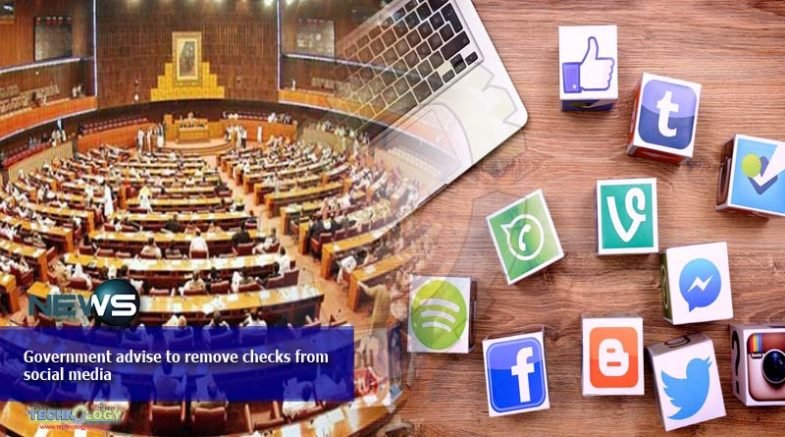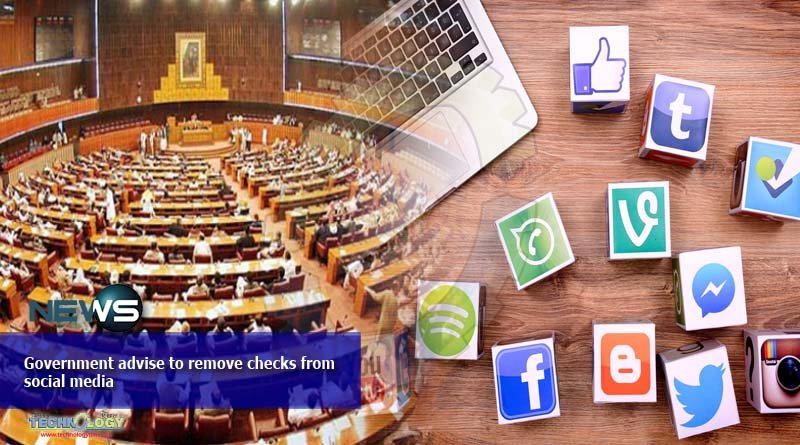As analysis of the government over new social media regulations proceeds, the Human Rights Commission of Pakistan (HRCP) and the Pakistan Federal Union of Journalists (PFUJ) urged the government to review its decision.
 The HRCP has shown apprehension over the guidelines under which the checks on social media will facilitate the designated authorities to control freedom of expression and opinion in the pretense of protecting religious, cultural, ethnic and national security sensitivities. It holds the PFUJ over its criticism of the government move and called for withdrawal of these checks.
The HRCP has shown apprehension over the guidelines under which the checks on social media will facilitate the designated authorities to control freedom of expression and opinion in the pretense of protecting religious, cultural, ethnic and national security sensitivities. It holds the PFUJ over its criticism of the government move and called for withdrawal of these checks.
PPP leader Raza Rabbani has also wanted the inspection of the proposed rules on the touchstone of law.
He has urged in a letter to the chairman of the Senate’s standing committee on delegated legislation for arranging a meeting of the panel to take up the citizens’ protection (Against Online Harm) Rules to determine if these conform to the parent act.
The former Senate chairman said the ministry of information technology and telecommunications claims to attract its its powers to draft the rules under clause (c) of sub-section (2) (a) of section 8, sub-section (1) of section 54, clause (ag) of sub section (2) of section 57 of the Pakistan Telecommunication (Reorganization) Act, 1996, and sections 35, 37, 48 and 51 of the Electronic Crimes Act.
He further said “The standing committee needs to check the said rules to ensure that they comply with the parent law”.
Under section 8 (2A) (c) of the Pakistan Telecommunication Act the Cabinet, or any committee authorized by the Cabinet, may issue any policy directive on any matter related to the telecommunication sector on requirements of national security and of relationships between Pakistan and the government of any other country or territory outside Pakistan and other states or territories outside Pakistan.
Section 54 (1) of the Act reads: “Notwithstanding anything contained in any law for the time being in force, in the interest of national security or in the apprehension of any offence, the federal government may authorize any person or persons to intercept calls and messages or to trace calls through any telecommunication system.”
Section 57 (2) (ag) of the Act gives powers to the government to enforce national security measures in the telecommunication sector.
Section 37 of Peca reads: “The Federal Government shall establish or designate a forensic laboratory independent of the investigation agency to provide expert opinion before the Court or for the benefit of investigation agency in relation to electronic evidence collected for purpose of investigation and prosecution of offences under this Act.”
The HRCP has expressed concern over approval of a set of rules designed to control social media platforms. Such a progress which has been made without consulting civil society stakeholder has no credible justification.
It said these rules will allow the designated authorities to control freedom of expression and opinion in the guise of protecting ‘religious, cultural, ethnic and national security sensitivities’. Such broad parameters could well be used to justify removing online content deemed critical of state policies or to access unencrypted user data, making ordinary users vulnerable to the misuse of personal data. Political dissent will be the first to suffer.
